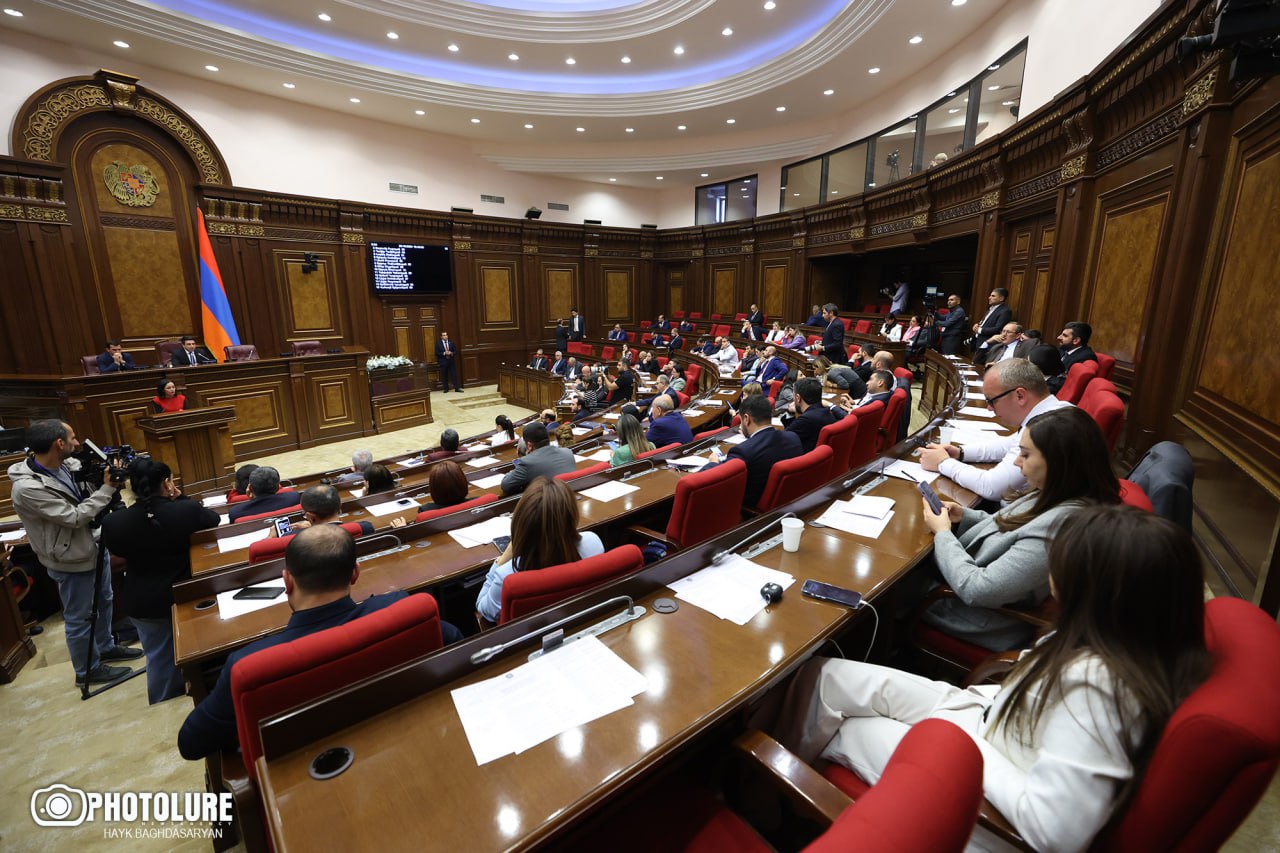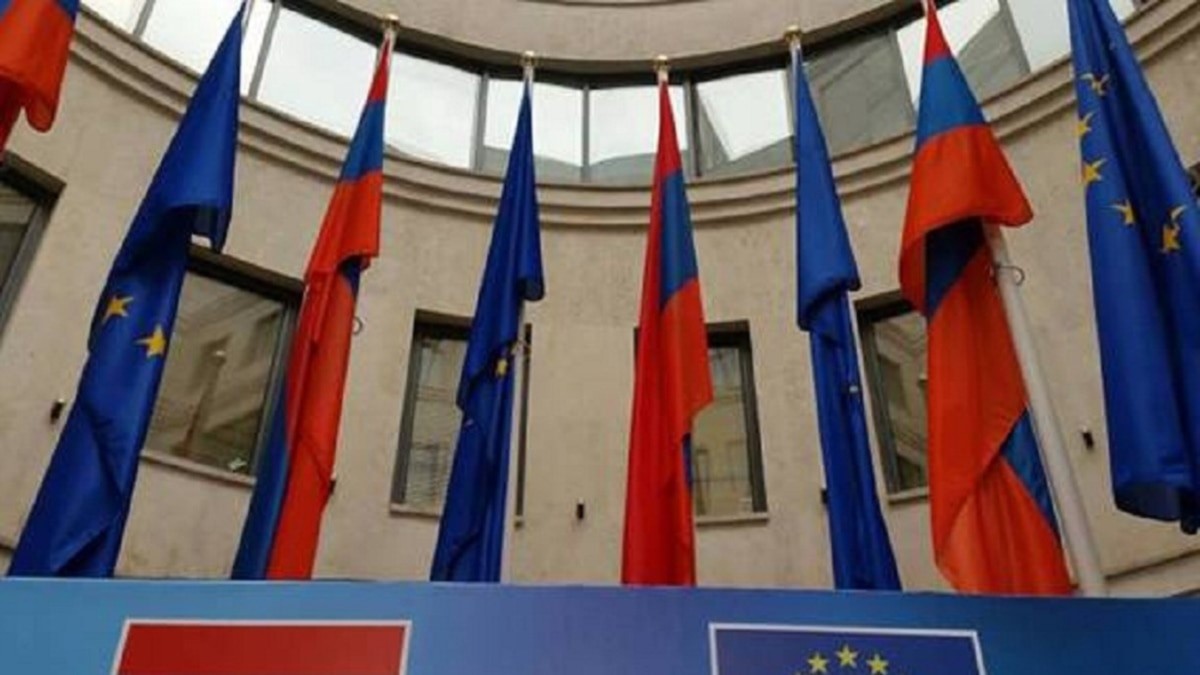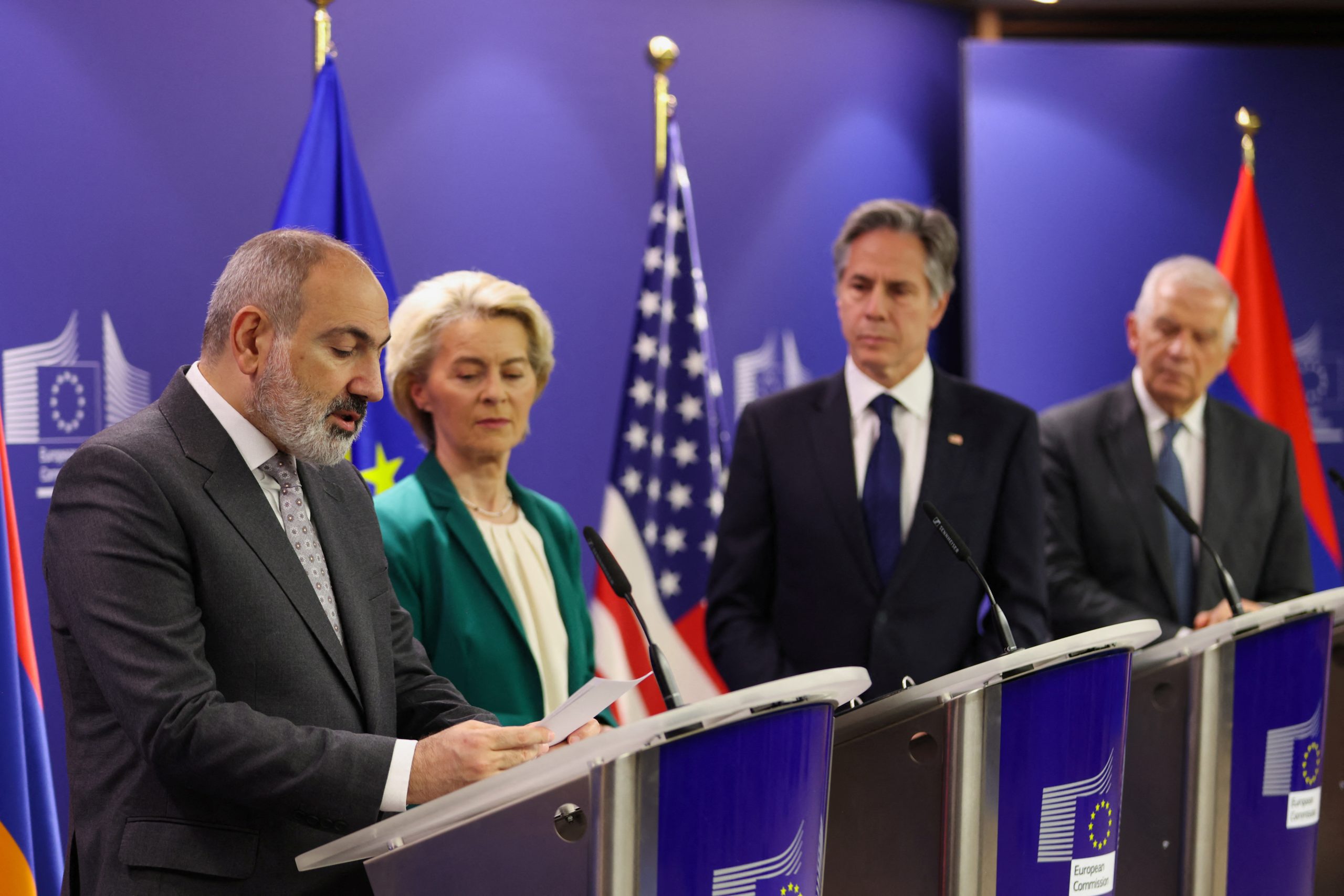'EU-Armenia ties have never been this close': European parliamentarians in Yerevan
European parliamentarians in Yerevan
“Clearly, Armenia will not join the European Union by the end of this year or next. This process requires time and effort. However, all the reforms Armenia undertakes on the path to EU membership will make it stronger. If any politician promises that Armenia can join the EU in the coming years, their expectations are exaggerated. A realistic timeframe is 5, 7, or even 10 years,” said European Parliament member Nils Ušakovs in Yerevan during the 4th meeting of the EU-Armenia Parliamentary Partnership Committee.
At a press conference following the session, Ušakovs, who co-chairs the committee, compared Armenia’s EU membership process to participating in the Olympic Games, stating that “the process is just as important as the outcome.” According to him, reforms aimed at aligning with European standards will strengthen Armenia and enable it to “make more confident decisions about its future.”
For nearly four hours, European parliamentarians and Armenian officials discussed the progress made under the Comprehensive and Enhanced Partnership Agreement (CEPA).
“Our reform implementation rate under the agreement stands at over 50 percent. Of course, this is not the best result. But we must work to improve this figure in the near future, and a new roadmap is already being developed,” concluded Armenia’s Minister of Justice, Srbuhi Galyan.
- ‘We will strive to balance our relations with EU and Russia’ – Pashinyan
- Economy Minister: ‘Armenia won’t swap EAEU for another bloc, it seeks independence’
- “Armenia – a potential candidate for EU membership.” Opinion from Yerevan
Judicial reforms under CEPA
Armenia’s Minister of Justice, Srbuhi Galyan, assured that the country has made progress in human rights protection.
New laws have been adopted, guidelines developed, and awareness campaigns conducted to educate the public about their rights. She noted that Armenia has now entered a phase of judicial reform, with the ministry implementing a digitalization program aimed at ensuring “accessible, fast, and efficient” justice.
As part of efforts to establish and strengthen the rule of law, Galyan highlighted reforms in:
- the electoral system,
- harmonizing local legislation with European standards,
- data protection measures,
- constitutional reforms.
“The constitutional concept has been developed. We are now working on a new draft of the constitution, which, according to our commitments, should be ready before the 2026 elections,” she stated.
Progress in EU-Armenia Relations
Deputy Foreign Minister Paruyr Hovhannisyan emphasized that Armenia seeks regional security, which would facilitate its path toward closer integration with Europe:
“The progress achieved in EU-Armenia relations over recent years demonstrates our commitment to expanding the agenda with the European Union and cooperating at various levels.”
He noted that the new EU-Armenia partnership agenda will be “a document that will reshape the existing legal framework and deepen bilateral relations.”
Hovhannisyan stressed that Armenian citizens want stronger ties with the EU, as reflected in the recent law initiating the country’s EU accession process. The Armenian parliament reviewed and approved this initiative, which was supported by 60,000 citizens.
Regarding the EU’s steps to support Armenia, the deputy minister highlighted the significance of:
- launching a visa liberalization dialogue,
- EU assistance under the European Peace Facility,
- extending the mandate of the EU monitoring mission on the Armenia-Azerbaijan border.
EU delegation head notes positive developments
“We are working on a new EU-Armenia partnership agenda aimed at strengthening cooperation in trade, energy, and education. These steps will ensure that Armenia can fully utilize the opportunities mobilized by the European Union,” stated EU Ambassador to Armenia Vassilis Maragos.
Maragos recalled that the Comprehensive and Enhanced Partnership Agreement (CEPA) was signed seven years ago, and in his view, significant progress has been made in justice, social protection, and education, alongside institutional reforms:
“Among the achievements, I would highlight the introduction of a new institutional and legal framework for anti-corruption efforts, the establishment of an arbitration center as an alternative dispute resolution mechanism, integrity checks for judges, the creation of a unified social service, and the launch of a new patrol police force.”
Maragos also welcomed Armenia’s decision to join the International Criminal Court. According to him, EU-Armenia relations have never been stronger or closer.
“EU views Armenia’s security as part of European family’s security”
“The European Peace Facility’s support for Armenia has demonstrated that there is a consensus within the EU: Armenia’s security is seen as part of the security of the European family. Every instance of instability near EU borders has originated in our region—we have seen this before. I believe the EU will not allow it to happen again,” emphasized Arman Yeghoyan, Armenia’s co-chair of the EU-Armenia Parliamentary Partnership Committee.
Discussing the development of relations with the EU, he noted that six years ago, when he first took on the co-chair position, bilateral ties were at a completely different level, and the European Parliament had “different priorities.” According to him, the past two to three years have seen a significant shift toward strengthening relations.
“We support Armenia’s peace agenda”
EU-Armenia Parliamentary Partnership Committee co-chair Nils Ušakovs focused on the ongoing Armenia-Azerbaijan negotiations:
“Armenia has taken on the responsibility of implementing a peace agenda, and we support it. Azerbaijan’s reaction to all this is difficult to understand and even harder to comment on.”
As an example of Armenia’s commitment to peace, Ušakovs highlighted Yerevan’s proposal to establish a mutual arms control mechanism, emphasizing that Baku has refused to cooperate. At the same time, he criticized Azerbaijan’s stance on the EU monitoring mission patrolling Armenia’s border:
“The EU civilian mission has helped stabilize the situation on the Armenia-Azerbaijan border. Of course, Baku and Moscow are critical of this mission and have voiced accusations. But the question remains: what threat could an unarmed civilian mission possibly pose to them?”
According to Ušakovs, the EU is particularly interested in Armenia’s Crossroads of Peace project. He stressed that the initiative is significant not only for Armenia but for the entire region:
“It is crucial that Armenia has the freedom to choose a European future, which includes economic diversification. This is another reason why we should focus on unblocking regional transport links.”
Welcoming the Armenian parliament’s decision to pass a law initiating the country’s EU accession process, Ušakovs stated:
“The truth is, EU-Armenia relations have never been this close. Our partnership is built on a strong foundation of shared commitments to democracy, the rule of law, and human rights. We firmly believe in the right of nations and states to choose their own future.”






















